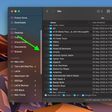Now that the new MacBook Pro models have been available for a week, we've been able to do more in-depth testing. In our latest YouTube video, we pit the entry-level 14-inch MacBook Pro with an M1 Pro chip against the high-end 16-inch MacBook Pro with an M1 Max chip to see just what you're getting with the upgrade to the M1 Max.
Priced at $1,999, the base 14-inch MacBook Pro features an M1 Pro chip with an 8-core CPU, a 14-core GPU, 16GB unified memory, and a 512GB SSD. The $3,499 high-end 16-inch MacBook Pro we compared it to in this video has an M1 Max chip with 10-core CPU, 32-core GPU, 32GB unified memory, and 1TB SSD. The two machines represent the most affordable and the most expensive stock MacBook Pro models that don't take into account upgrade options.
In our testing, the M1 Max unsurprisingly outperformed the lower-end M1 Pro chip, but what was a bit of a surprise was how well even the base M1 Pro chip did in our tests.
In Final Cut Pro, a video export test saw the M1 Max machine export a 6-minute 4K video in one minute and 49 seconds, a task that took the M1 Pro 2 minute and 55 seconds. When it comes to 8K RAW footage, both machines were able to handle the load. The M1 Max MacBook Pro performed close to flawlessly, while the M1 Pro had a few issues with dropped frames and stuttering, but was ultimately able to keep up.
For comparison's sake, the 2017 Mac Pro that we have is not able to handle 8K footage as well as the base model 14-inch MacBook Pro with M1 Pro chip. The M1 Max ultimately did better with our Final Cut Pro testing because of the 32 GPU cores, but the M1 Pro machine offered impressive performance.
In a Blender test, a complicated image of a classroom was rendered in just 8 minutes and 23 seconds on the M1 Max MacBook Pro, a process that took the M1 Pro MacBook Pro 10 minutes and 58 seconds.
We tested the memory in both machines by opening up a series of apps that one might use in a video editing workflow, like Final Cut Pro, Lightroom, Chrome, Safari, Music, and a few others, and there were zero performance hiccups across either MacBook Pro model. Intel machines with 16GB RAM often see issues with this same setup, so again, even the low-end MacBook Pro is doing well here. Both the 512GB SSD in the base model and the 1TB SSD in the 16-inch MacBook Pro performed about the same, with a 128GB file transferring from an external SSD to an internal SSD in 44 and 43 seconds, respectively.
As for straight Geekbench numbers, the MacBook Pro with M1 Max earned a single-core score of 1781 and a multi-core score of 12785, while the MacBook Pro with base M1 Pro chip earned a single-core score of 1666 and a multi-core score of 9924. Metal scores came in at 38138 for the M1 Pro and 64134 for the M1 Max.
You're going to want to watch our full video for the complete performance comparison as we also did some other tests on the two machines. All in all, if you have a workflow where seconds matter, like exporting video or working with large 3D files, you're going to save time with the M1 Max, but the M1 Pro, even the base model, is still a very capable machine.
























